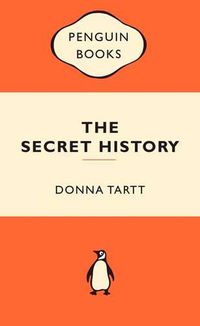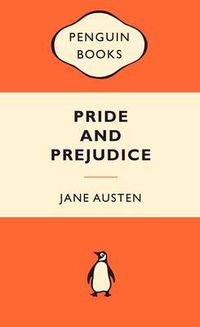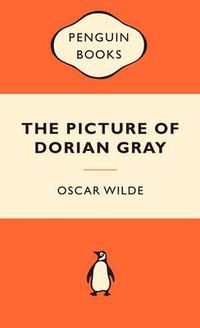We’re delighted that Last Day in the Dynamite Factory by Annah Faulkner is one of the six books shortlisted for this year’s Readings Prize for New Australian Fiction. Here is a short extract from the novel.
Find more information about this year’s shortlist (including the judges’ report) here.
1997
Jo’s end was brutal, too, but slow. Not felled by a single blow, but eaten away, from the inside.
Chris sat with her during those last few days, giving her husband, Ben, a chance to slip home for a few hours’ sleep or a change of clothes. He murmured to her about the good times, stroked her forehead or held her hand – rigid with pain or limp with resignation – and felt the spirit of his beloved aunt ebb away. When she fell into a coma, he and Ben wrapped her in their love and let her go.
Surrender to the inevitable has left him drained, but a crematorium full of people demands that he must – as Jo might say – press on regardless. He slides back a cuff of the shirt beautifully ironed by his wife, Diane, and glances at the watch Jo and Ben gave him for his eighteenth birthday. Eleven fifteen. The late is late.
He shrugs within the confines of his suit. Damn thing: it’s too tight or too poorly fitting or just too … suit. He doesn’t wear suits; wouldn’t be wearing one now if not for Ben. Jo wouldn’t have cared if he’d worn pyjamas, except he doesn’t wear pyjamas, either. Diane gave him a white silk set four or five Christmases ago and when, at her insistence, he put them on, he felt like a Christmas angel or, more disturbingly, like a virgin. He wonders, now, if they were a message from his wife that he’d missed. He pats his jacket, seeking reassurance from the small piece of wood he always carries in his pocket. Not there. He pats the other pocket. No wood. Maybe the trousers.
‘Chris,’ Diane whispers. ‘Stop fidgeting.’
What is he – eight? No, forty-eight. Today, in fact. Some party. Jo gazes at him from the photo on her printed funeral service.
Josephine (Jo) Faith Bright
1926–1997
Chris lifts his glasses and runs a finger under his eyes, then pulls out a handkerchief and mops his forehead so anyone watching will think he’s blotting sweat, not tears. One of his favourite old groups, Blood, Sweat & Tears.
Plenty of sweat and tears today, but not much blood. Some from Aunty Jo, his mother’s sister, but none from her husband, Ben. Yet it is for Ben that Christopher wears the suit. He’d wear a hair-shirt for Benjamin Bright if required. Beside him, his adoptive father is a crumple of grief, yet his suit is immaculate.
‘God created the suit for you,’ Chris told him once, ‘along with The Word for the rest of us.’ Ben had smoothed his lapel.
‘Imagine turning up for work in overalls – my clients would have conniptions.’
‘Surely that’s the point of being an auditor,’ Chris replied. Though the idea of Ben making anyone nervous was ludicrous.
Phoebe, on Ben’s other side, bestows her grandfather with a brief, tender smile. With her mother’s composure and her father’s Nordic colouring their daughter is a head-turner. Today, her flaxen hair is pulled into a bun and her pink-grey suit, though fittingly demure, sticks to her figure in a way Chris finds discomfiting. Not that he’d say anything. Phoebe would arch her exquisite brows and suggest that he mind his own business. At three, Phoebe was her own woman. At twenty- three, you didn’t interfere.
Chris rubs a hand over his chin, feeling the blond stubble that springs the moment the razor has passed over it. He read somewhere it keeps growing after you die. He doesn’t much like the idea of his body going on doing things after he’s left it.
Archie sniffs, and Diane passes their son a tissue. He wears an ancient leather bomber jacket rescued from some musty welfare shop. His current girlfriend has cut his mop of dark hair and he looks neat, if not tailored. Chris has forgotten the girlfriend’s name but it probably won’t matter. At twenty, Archie’s turnover of girlfriends is so breathtakingly fast he might have forgotten too. Chris wonders what it would be like to have girlfriends whose names you don’t remember. ‘Serially monogamous though, Father,’ Archie boasts. ‘Faithful while it lasts.’ Archie has been using the word Father rather than Dad more frequently lately, mostly accom- panied by a bout of moral superiority. Chris hopes he will grow out of it.
It’s stuffy in the chapel, unusually hot for Brisbane in winter, and the smell of lilies and wreaths propped against the feature- less timber walls has intensified to the point of nausea. People murmur, foot-scrape, sigh, hunch over plans for the rest of the day, the rest of their lives. As one man lifts his watch to his ear Chris sees the hearse, a great black beetle creeping down the driveway and disappearing behind the crematorium. Moments later, the holy muzak fades away and the curtain is drawn back to reveal Jo’s coffin. Open. Her body is in there, just below the lip. An hour from now, it and the coffin will be ash.
The funeral director steps forward. ‘Those who wish to pay their respects to Josephine may now do so.’
Chris doesn’t need to pay his respects to Jo by viewing her body. But Ben is struggling to his feet so together they walk towards the podium, Chris a full head taller than his adoptive father, and peer into the shiny walnut coffin. And there she is, a doll with satin and tulle frothed around her face, pale in death as an over-washed nightie. It’s a small, shrunken-looking Jo, the remaining fuzz on her head combed into submission. Gone, the springy blonde hair, the warm voice and hazel eyes. Gone, the aunt he loved like a mother, gnawed to death by cancer.
Chris glances at Ben and wonders what he’s thinking. Despite a lifetime spent with Ben and Jo, he’s still not sure how he’d define their relationship. Affectionate and kind – without a doubt – but driven more, he suspects, by compassion than passion.
He escorts Ben back to his seat and returns alone to the podium. In his head is a eulogy so painstakingly rehearsed there’s no chance of stuffing it up, but words have a habit of failing him when he needs them most. Worse – they arrive, but their intended meaning is buried in a tactless and clumsy verbal dump.
Faces gaze up at him expectantly. He clears his throat.
‘Good … ah … morning. Ben and I – our – our family would …’
Sweat springs beneath his shirt. He stands before the gather- ing, mute. The words have fled and will not return for at least five minutes – perhaps not even for five hours – depending on how well he can distract himself. Here on the podium he might be on hold for …?
A man extracts himself from the crowd and hurries up the aisle. Half his height and – Chris reckons – twice the man, ‘Judge’ Baillieu, his best friend and business partner, nudges Chris aside and begins to speak. He sparkles with dark intensity, filling the chapel with the deep and genuine conviction that the world has lost one of its best. Chris wilts with relief. Everyone wilts with relief. Some shed tears, not only because of Judge’s oral artistry but because what he says is true.
After the ceremony, Jo’s frail carapace delivered to its fate, people gather outside and loiter in the breezeway, clumping like sheep, running fingers beneath collars and fanning faces with Jo’s printed funeral service.
‘Hot for June, eh?’
From his shore of voiceless grief, Chris watches them mill, recognising their uncertainty about how soon they can decently get into their cars and go back to his house for funeral tea.Diane comes to his side. ‘Are you all right? You haven’t stuttered for such a long time.’
It’s not a stutter, no woodpecker hammer at a consonant, but a total inability to speak. Sentences form sleekly inside his head but something goes haywire between his brain and his mouth and either nothing emerges at all, or it comes out garbled. The ‘condition’ has been variously labelled Selective Mutism and Social Phobia but it’s neither. It’s a memory, a hand from the past that squeezes the air from his lungs just when he needs it most. For want of a better name, he and Diane have called it a stutter.
He nods to her question and swings his arms.
‘I’ll drop you at the junction and you can walk from there.’ Diane shepherds the family into Chris’s old Rover and slips into the driver’s seat. At the Ashgrove shopping centre she pulls over and lets him out.
He walks alone down the quiet, tree-lined streets, glasses misting, gut hollow. Fifteen minutes later when he reaches number 10 Appleby Street, his inclination is to continue on to the park and stay there until all the cars jamming his driveway and littering the street have gone. To be alone and remember.
But he doesn’t. He couldn’t. He is the one who holds the family together.
Besides, he could never do that to Ben again.





